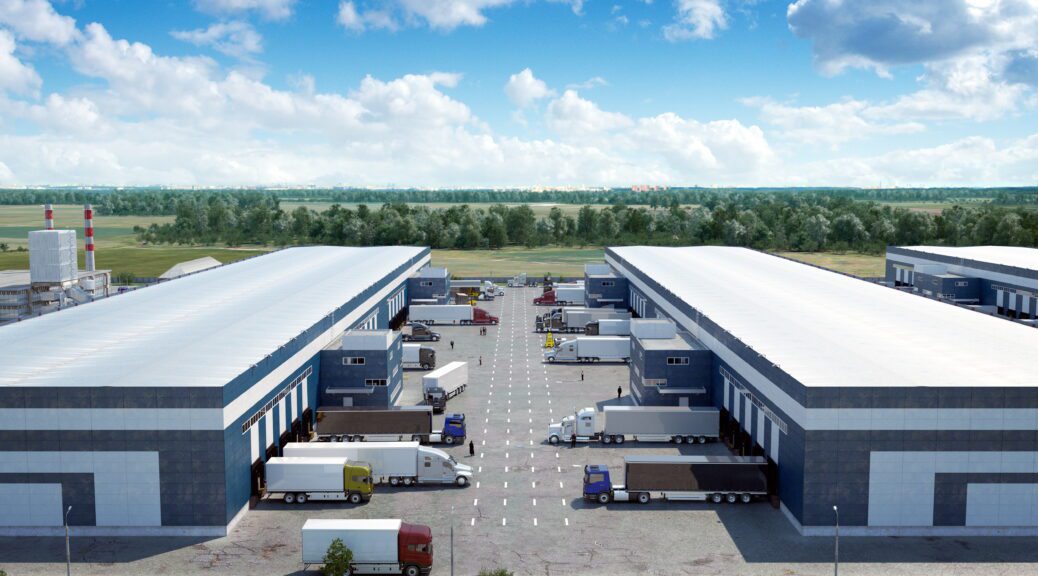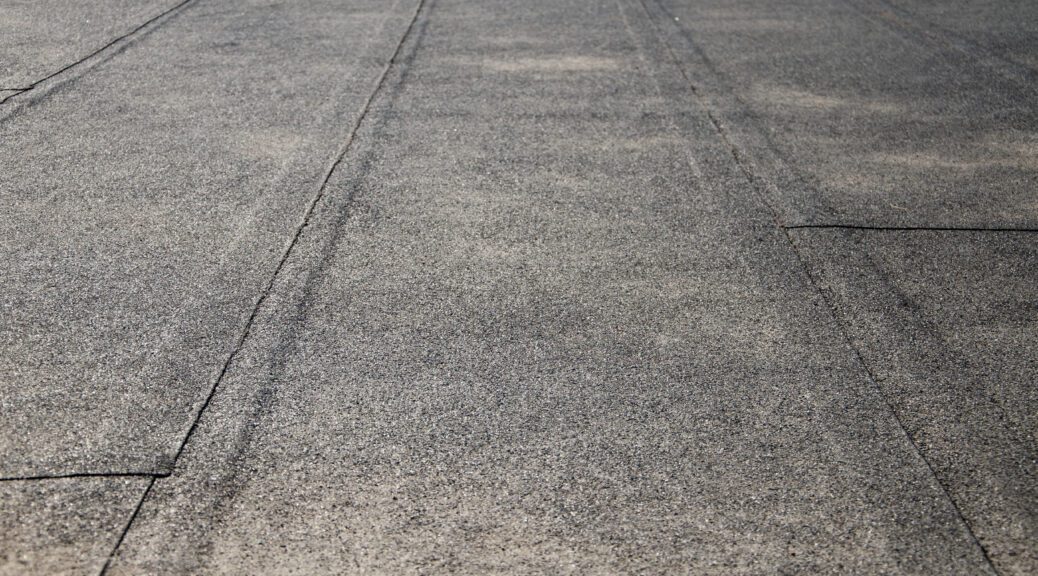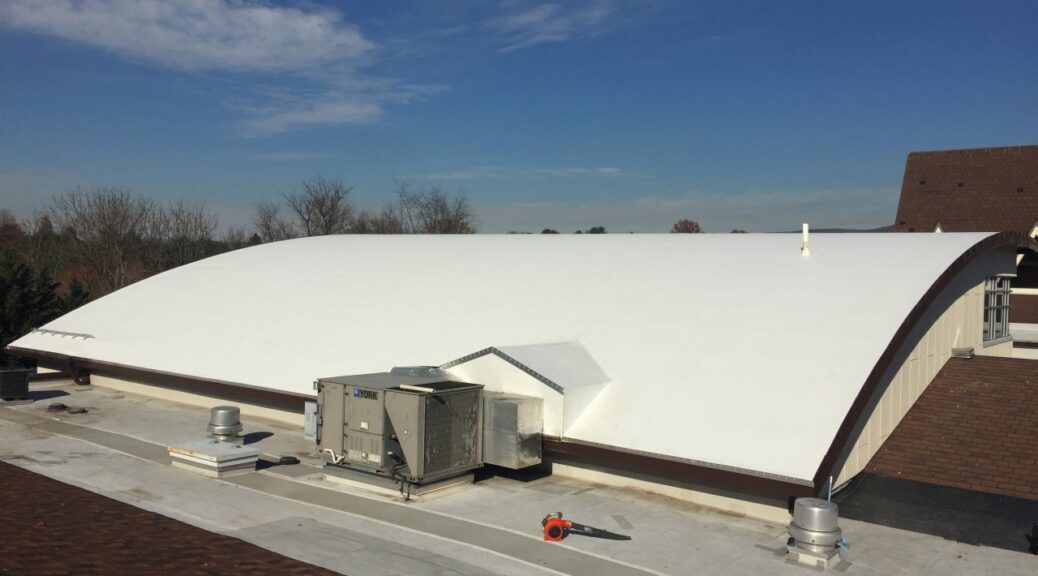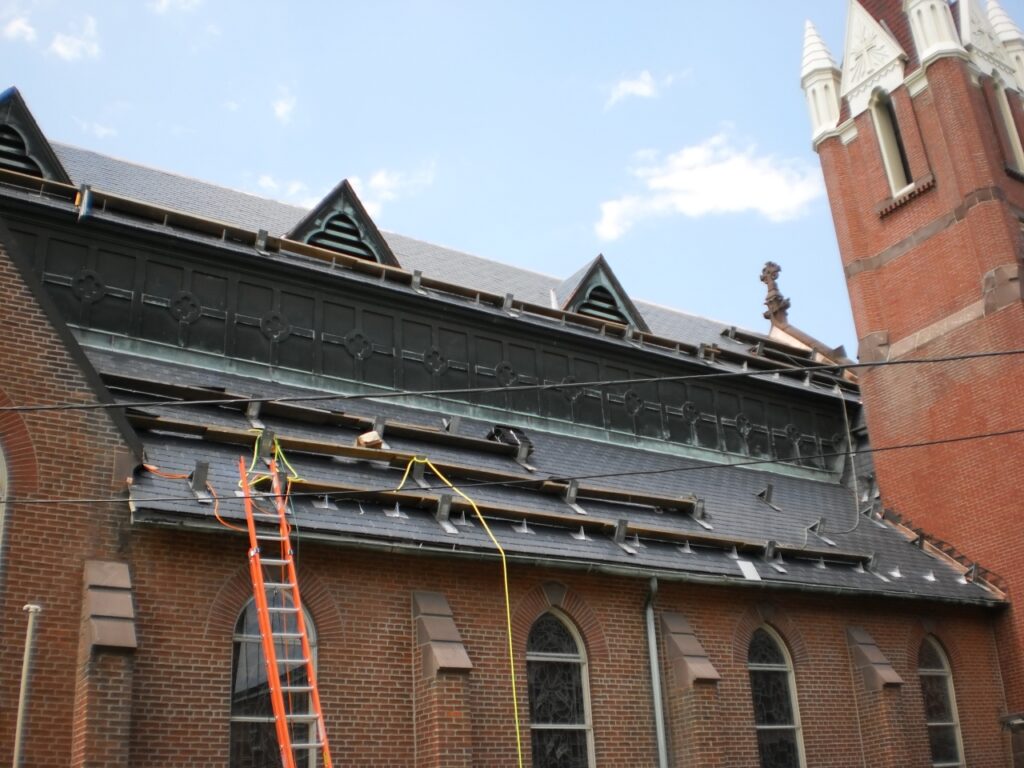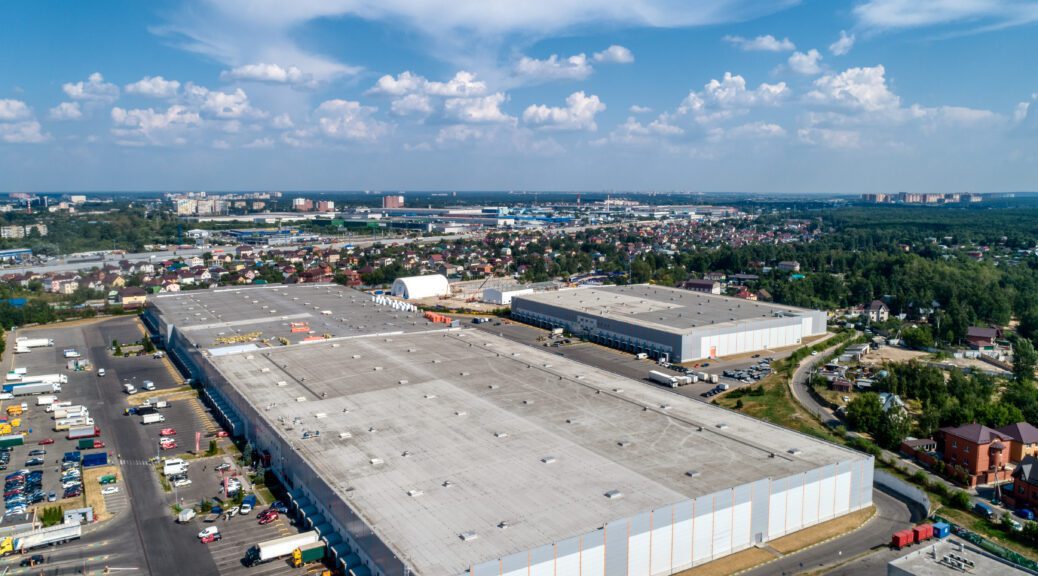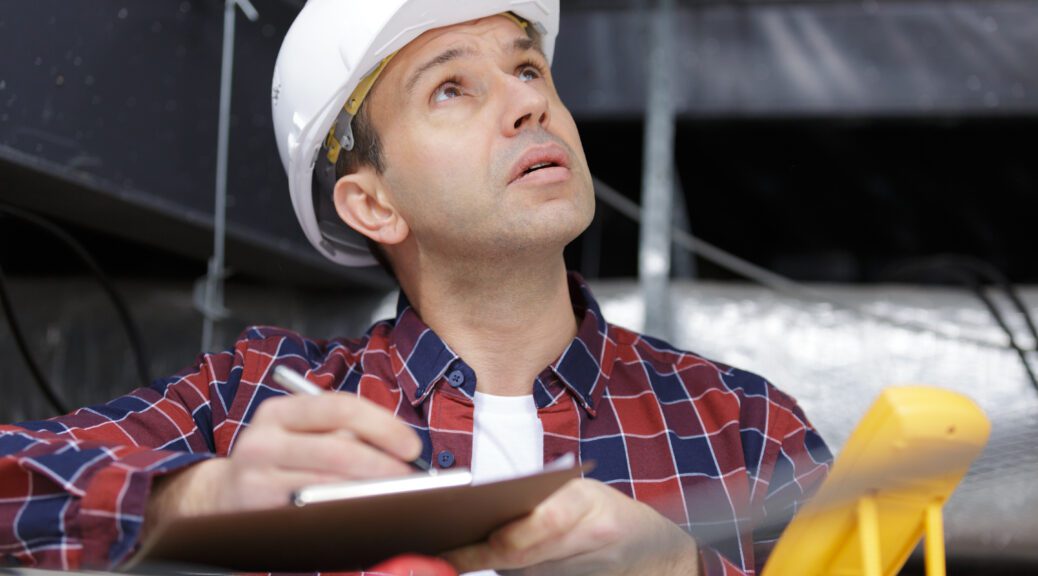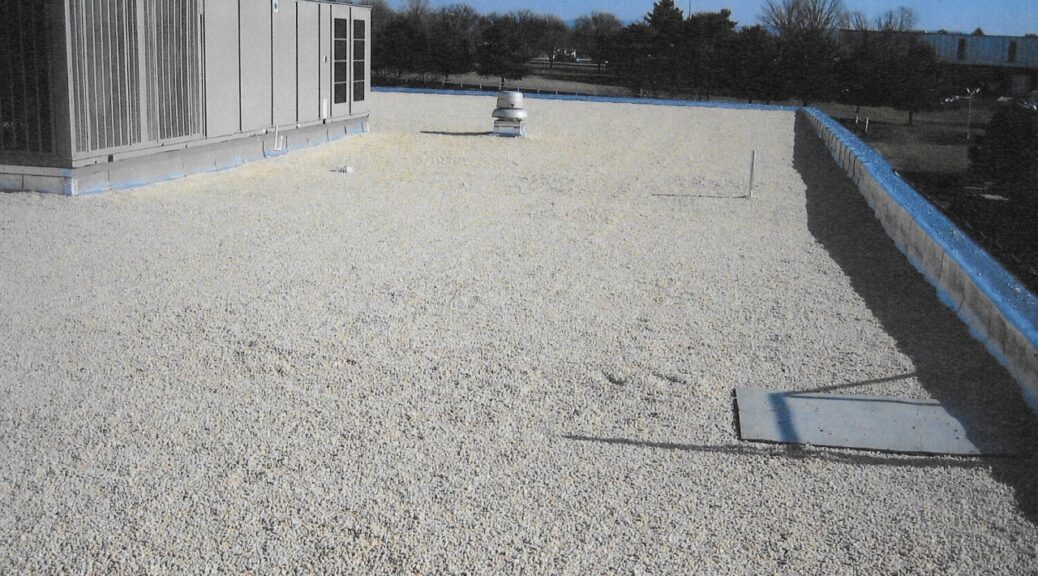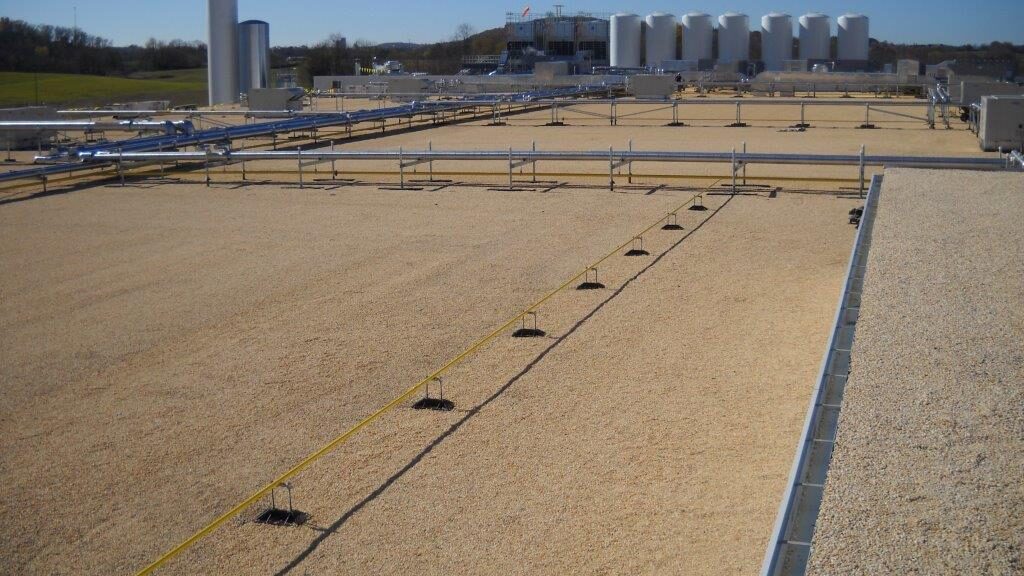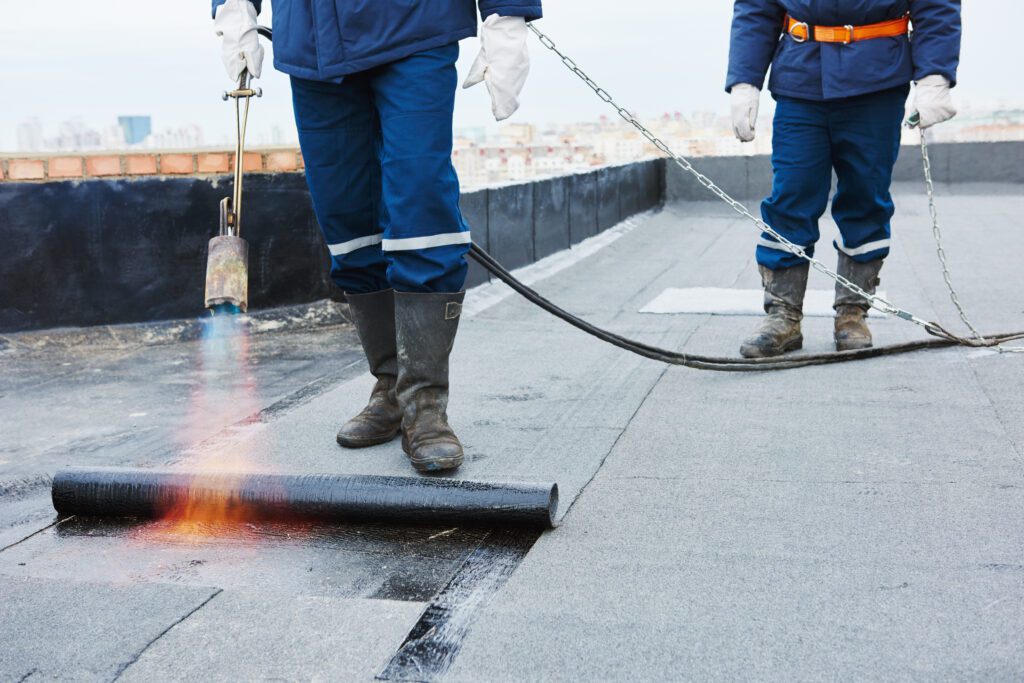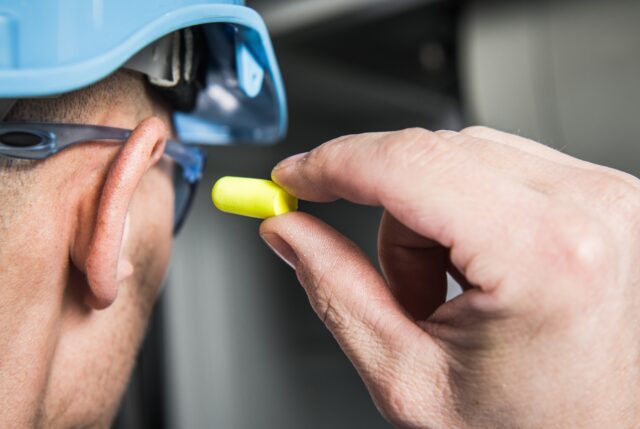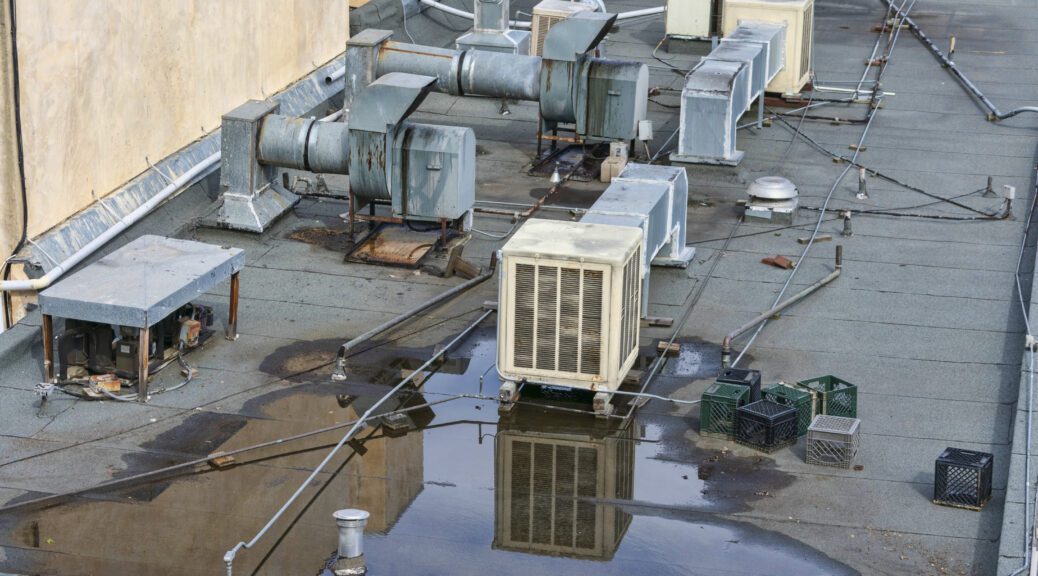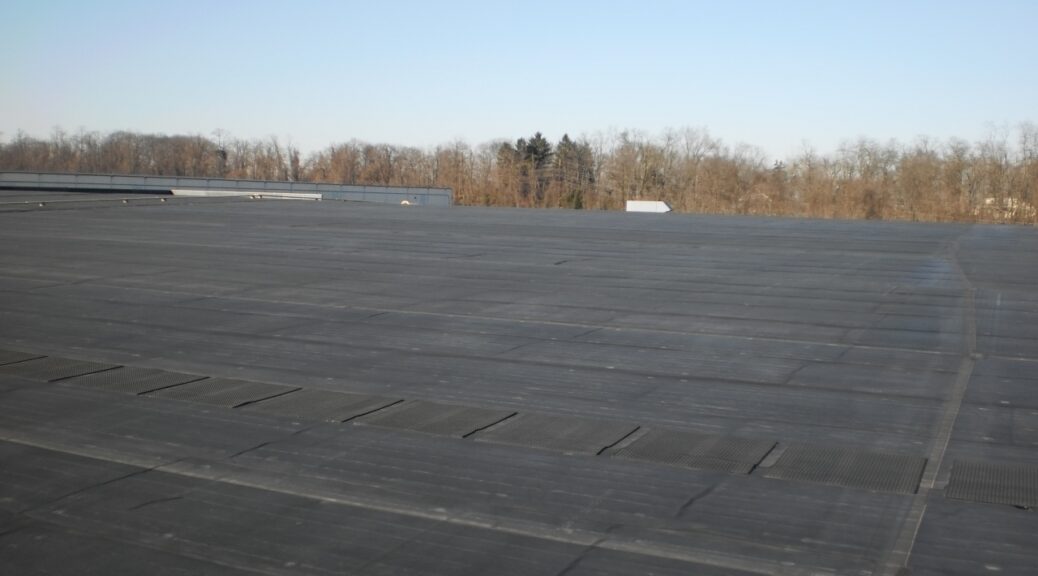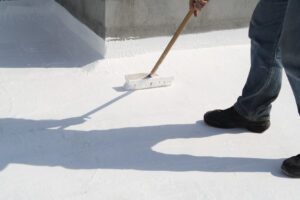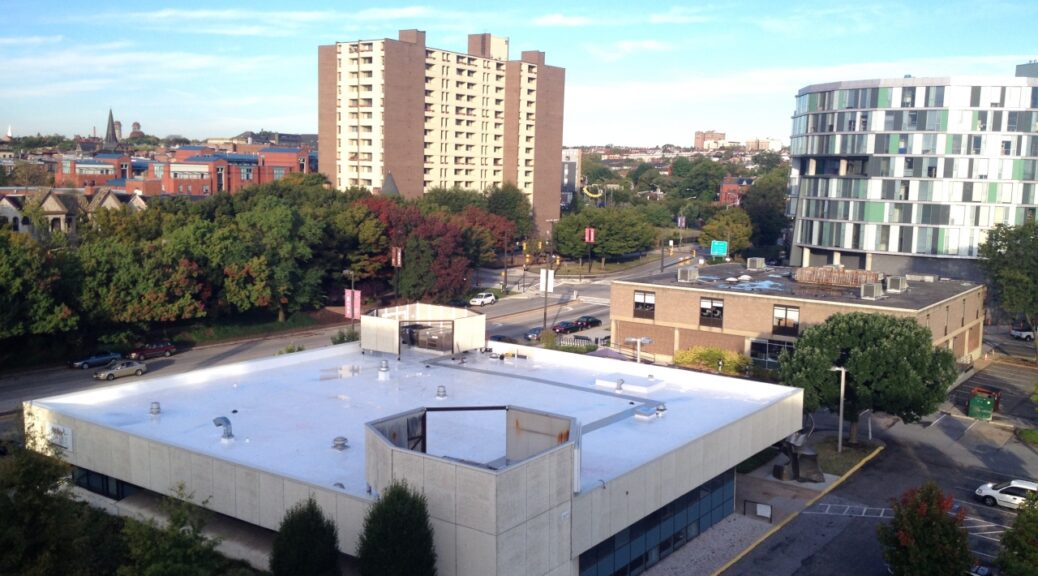Keeping a warehouse operational and profitable takes hard work. From dealing with shipping, receiving your items, and hiring the right workers, warehouse owners have a lot on their shoulders. But if you haven’t recently given thought to what’s protecting the entirety of your operations—your roof—you might be missing an essential element of warehouse management.
With various warehouse roof types available, knowing the material on your roof can affect several factors of your business. For example, do you frequently have grease and oil exhaust on your roof that someone needs to check? If so, you need a roofing solution that can resist those emissions and withstand regular foot traffic. Are your energy bills through the roof? In that case, you’ll want to evaluate your commercial roof to see the issue and whether you need a new roofing material, additional insulation, or a coating.
Either way, you need an experienced roofing company to thoroughly assess your roof’s condition, including its age, weak spots, typical weather patterns, and special circumstances. The best commercial roofing contractor in the Mid-Atlantic region of the U.S. is Heidler Roofing! For more than 63 years, we’ve helped warehouse owners and managers install, repair, and maintain the right roofing material for their operations. Learn more about the most popular types of warehouse roofs, and then contact us for your customized roofing estimate!
Built-Up Roofing
Built-up roofing (BUR) is one of the oldest commercial roofing materials. After the layers are “built-up” on the roof, it is topped with aggregates like stone. The number of layers used on your warehouse will vary, depending on whether your goal is to control costs or meet specific durability requirements. The layers give warehouses with a built-up roof good insulation, and the stone or gravel on top can withstand foot traffic. Surfaces can also be smooth or coated.
Modified Bitumen Roofing
Modified bitumen roofing (MB or Mod. Bit.) is a cousin of BUR systems. However, it’s held together with polymerized rubber or plastic instead of topped with aggregates. The product is reinforced with fiberglass or polyester for strength. We typically install MB roofs in two layers and adhere them to the insulation or directly to the roofing deck for stability and protection. If you want to decrease your energy bill, MB roofs are good at reflecting light.
Single-Ply Membrane Roofing
Single-ply membranes are a second warehouse roof type that may be right for your building. Single-ply membranes for commercial flat roofs are made from either thermoplastic or thermoset materials. Still, all offer superior leak protection and may even be able to help decrease your high energy bills.
EPDM Roofing
Ethylene propylene diene monomer (EPDM) roofing is a thermoset material used for over 50 years and provides excellent waterproofness. The synthetic rubber-like material provides weathering resistance, so it doesn’t wear out easily from seasonal temperature changes or frequent precipitation. Another option for introducing better UV reflectivity—especially for aging roof membranes that need repair—is restoration with an EPDM roof coating.
TPO Roofing
Thermoplastic polyolefin (TPO) roofing is a thermoplastic roofing option that provides excellent energy efficiency. Because it reflects the sun, your cooling costs may lower in the summer. We heat-weld the seams to ensure a waterproof seal. TPO is one of the most common warehouse roof types. It’s also quite cost-effective when compared to other roof systems.
PVC Roofing
Polyvinyl chloride roofing (PVC) is also thermoplastic and resists oils and fats that may emit from your exhaust system onto your rooftop. As a thermoplastic material, it naturally expands and contracts with temperature shifts and is usually white or reflective in appearance. This appearance can decrease your cooling costs in the summer.
Metal Roofing
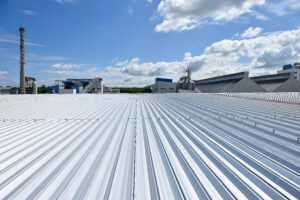
Metal roofing is a specialty roofing material that is sometimes appropriate for warehouses. It also has strong fire resistance, durability, and attractiveness. The added benefit of metal roofs is that some can last 100 years or longer. However, it is a more expensive option.
Warehouse Roof Coatings
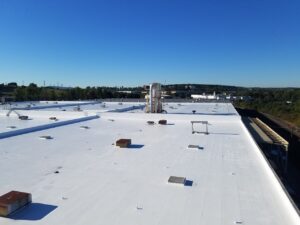
Not all warehouse roof problems must be solved with a total replacement. Often, roof coatings, or liquid-applied roofing, are viable alternatives to getting an entirely new roof. A coating can fill in cracks, gaps, and other flaws, leading to a waterproof roof. There are four primary types of warehouse roof construction coatings we use here: acrylic, silicone, polyurethane, and butyl.
Acrylic Coating
Acrylic coatings may be right for your type of warehouse roof. They are ideal for low-slope roofs with minor ponding. They typically require a primer and fabric reinforcement onto the existing roof structure. We then apply the liquid material using a roller, sprayer, or brush.
Silicone Coating
Silicone coatings are like acrylic but may offer better water resistance for roofs prone to ponding. Silicone is made to stretch without breaking and is highly reflective. They also offer significant energy savings. They are typically applied in a single coat.
Polyurethane Coating
A polyurethane coating is a durable option. This coating is sometimes used as an original warehouse roof type. While it’s not as reflective as other coating options, it can stand up to ponding water quite well.
Butyl Coating
A butyl coating is a solvent-based synthetic rubber that can stretch without breaking and remains quite strong. It can also reflect UV rays to help with energy costs.
For Advice on the Right Warehouse Roof Type for You, Contact Heidler
With all these roof options, how can you decide on the best one for your warehouse? Should you choose something more cost-effective to install or something that will last an extremely long time? Is multi-ply roofing, single-ply membranes, or a roof coating your best option? And which of the materials in those categories is right for you?
There’s not a single answer that works well for every roof. Your warehouse roof type is unique based on the shape of the roof, weather conditions, the business you conduct inside your building, and the existing roof structure. The only way to tell for sure which type of warehouse roof is best for you is to contact a professional roofing contractor like Heidler Roofing.
We’ll come to your location and physically go on your roof to inspect it. You’ll receive a detailed report with problem areas, pictures, measurements, and recommendations. We’ll even include price estimates to help you choose. Our experienced team will advise you on the best material or coating for your roof. All you must do is contact us to schedule your estimate!


